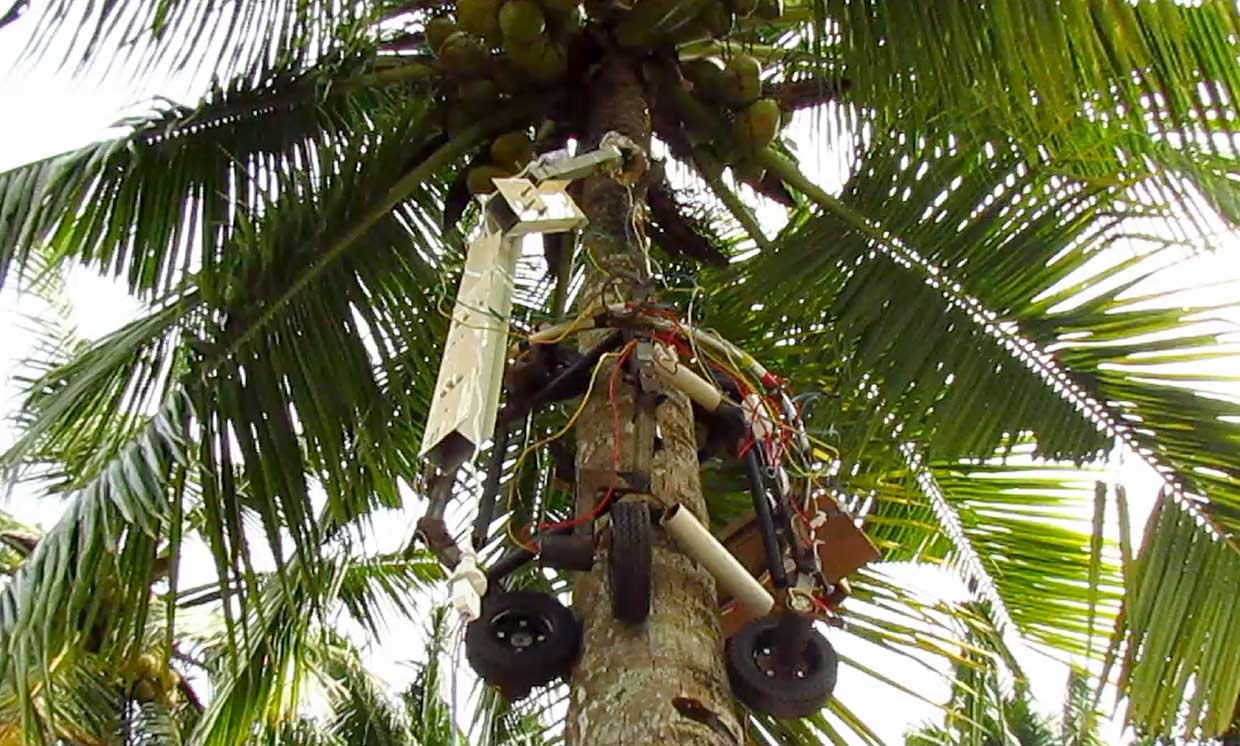Sunday, 1 February 2026

This newly patented invention is a remote-controlled, unmanned tree-climbing apparatus that is risk-free, efficient, and user-friendly.
The Unmanned Remote-Controlled Palm Tree Harvesting Robot, developed by Dr. A. R. Desai’s team from ICAR-Central Coastal Agricultural Research Institute, Goa, and Dr Rajendra S. Gad’s team from Goa University, has been granted Patent No. 537851 (Application No. 201721022813, dated July 29, 2017).
Coconut is a crucial cash crop in coastal regions, particularly in Southern India. However, interest in coconut plantations has been waning for two primary reasons: the scarcity of coconut tree climbers and the rising wages for the few remaining. Traditional coconut harvesting communities are moving away from these jobs due to improved living standards and the inherent risks involved. Meanwhile, wages for coconut harvesters have surged in recent years, making the process more expensive. Although various coconut and areca nut climbing devices are available, they often suffer from drawbacks such as complicated designs, high costs, and the need for prior experience. Most existing devices are manned, posing risks and inefficiencies.
This newly patented invention is a remote-controlled, unmanned tree-climbing apparatus that is risk-free, efficient, and user-friendly. It reduces the risk associated with human climbers, shortens harvesting time, and is lightweight and portable. Moreover, it addresses the significant issue of plant damage caused by sharp blades or bark-penetrating spikes in other devices. This innovation offers a less invasive and hassle-free method of harvesting. The technology promises significant benefits for coconut farmers, agri-entrepreneurs, and self-help groups in coastal and coconut-growing regions. The inventors also have a message to prospective entrepreneurs to come forward with a Tripartite MoU (with ICAR- CCARI and Goa University) for mass production and commercialization of the device for the benefit of coconut farmers.